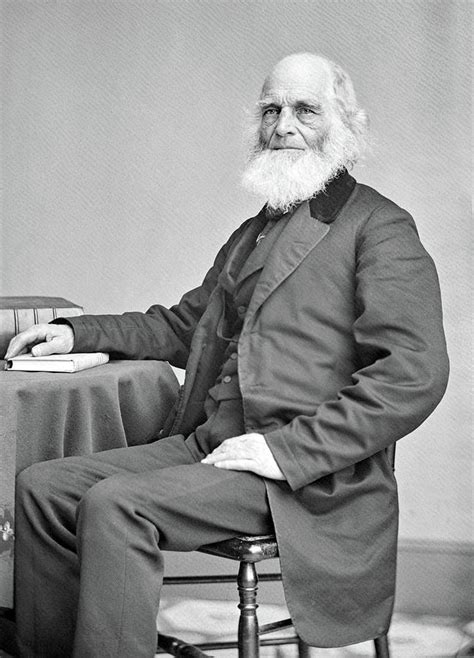Top 117 Quotes & Sayings by William C. Bryant
Explore popular quotes and sayings by a poet William C. Bryant.
Last updated on April 14, 2025.
Earth, that nourished thee, shall claim
Thy growth, to be resolved to earth again,
And, lost each human trace, surrendering up
Thine individual being, shalt thou go
To mix forever with the elements,
To be a brother to the insensible rock
And to the sluggish clod, which the rude swain
Turns with his share, and treads upon. The oak
Shall send his roots abroad, and pierce thy mold.
Much has seen said of the wisdom of old age. Old age is wise, I grant, for itself, but not wise for the community. It is wise in declining new enterprises, for it has not the power nor the time to execute them; wise in shrinking from difficulty, for it has not the strength to overcome it; wise in avoiding danger, for it lacks the faculty of ready and swift action, by which dangers are parried and converted into advantages. But this is not wisdom for mankind at large, by whom new enterprises must be undertaken, dangers met, and difficulties surmounted.
The country ever has a lagging Spring,
Waiting for May to call its violets forth,
And June its roses-showers and sunshine bring,
Slowly, the deepening verdure o'er the earth;
To put their foliage out, the woods are slack,
And one by one the singing-birds come back.
Within the city's bounds the time of flowers
Comes earlier. Let a mild and sunny day,
Such as full often, for a few bright hours,
Breathes through the sky of March the airs of May,
Shine on our roofs and chase the wintry gloom-
And lo! our borders glow with sudden bloom.
The blacks of this region are a cheerful, careless, dirty, race, not hard worked, and in many respects indulgently treated. It is of course the desire of the master that his slaves shall be laborious; on the other hand it is the determination of the slave to lead as easy a life as he can. The master has the power of punishment on his side; the slave, on his, has invincible inclination, and a thousand expedients learned by long practice... Good natured though imperfect and slovenly obedience on one side, is purchased by good treatment on the other.
The press, important as is its office, is but the servant of the human intellect, and its ministry is for good or for evil, according to the character of those who direct it. The press is a mill which grinds all that is put into its hopper. Fill the hopper with poisoned grain, and it will grind it to meal, but there is death in the bread.
The summer day is closed - the sun is set:
Well they have done their office, those bright hours,
The latest of whose train goes softly out
In the red west. The green blade of the ground
Has risen, and herds have cropped it; the young twig
Has spread its plaited tissues to the sun;
Flowers of the garden and the waste have blown
And withered; seeds have fallen upon the soil,
From bursting cells, and in their graves await
Their resurrection. Insects from the pools
Have filled the air awhile with humming wings,
That now are still for ever; painted moths
Have wandered the blue sky, and died again
The right to discuss freely and openly, by speech, by the pen, by the press, all political questions, and to examine the animadvert upon all political institutions is a right so clear and certain, so interwoven with our other liberties, so necessary, in fact, to their existence, that without it we must fall into despotism and anarchy.
The windflower and the violet, they perished long ago,
And the brier-rose and the orchis died amid the summer glow;
But on the hills the golden-rod, and the aster in the wood,
And the yellow sunflower by the brook, in autumn beauty stood,
Till fell the first from the clear cold heaven, as falls the plague on men,
And the brightness of their smile was gone, from upland glade and glen.























